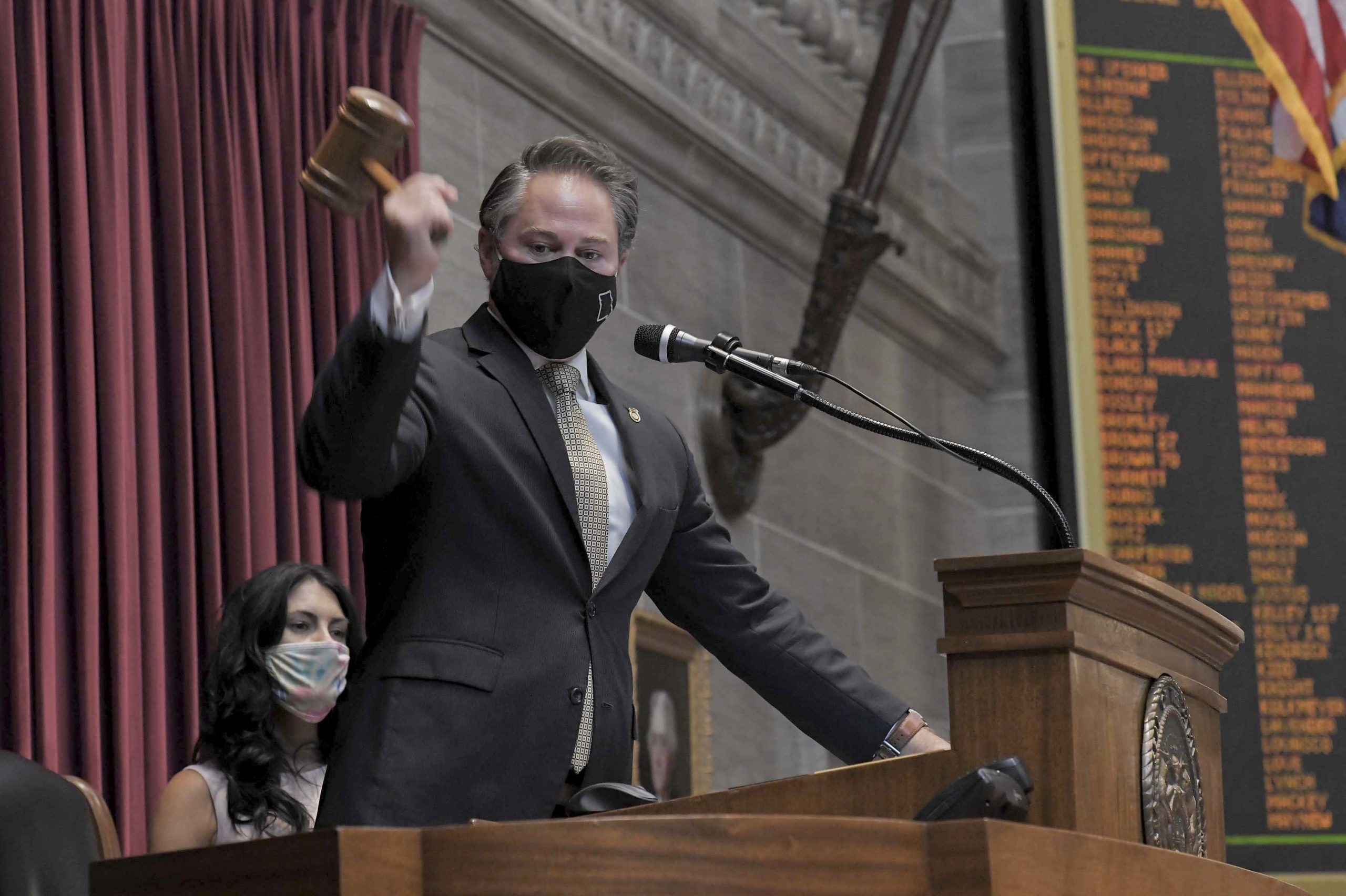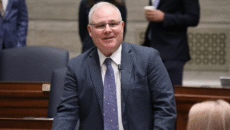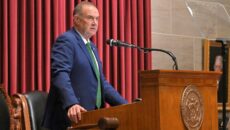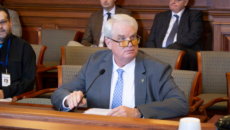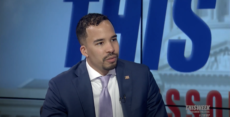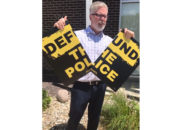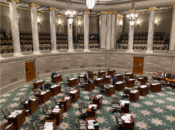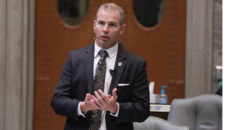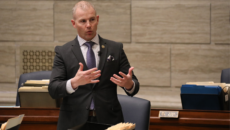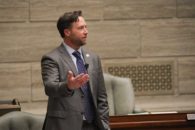JEFFERSON CITY, Mo. — After nearly two months of turbulent back-and-forth between both chambers, the Missouri Legislature adjourned from its special session on violent crime Wednesday, sending two bills to the governor’s desk.
“The shooting and killing of one another has to stop. If we are to change violent criminal acts across our state, we must work together, and we must support our law enforcement officers,” Gov. Mike Parson told reporters Wednesday afternoon. “We are excited and plan to sign these [bills] as soon as possible.”
HB 46 seeks to eliminate the residency requirements for police and other public safety officers in St. Louis. Proponents said these requirements are the main obstacle to recruitment, while opponents raised concerns over community relations.
HB 66 will establish the “Pretrial Witness Protection Fund.” Proponents said the fund would protect those willing to testify in court and help put violent offenders behind bars, while opponents noted no funding source was attached to the measure during its time in the legislature.
Parson said another special session, focused on appropriations for the fund, will take place sometime in October.
Both bills were approved by the Senate alongside three others that made up the pillars of the special session as the governor called it in July. The three remaining bills were sent back to the House for final consideration but were not taken up on the floor Wednesday.
HB 11 sought to modify the offense of endangering the welfare of a child, while HB 16 focused on the offense of illegal transference of a forearm to a minor.
HB 2, which covered the admissibility of witness statements, took up a large portion of the Senate’s debate due to an amendment that would have established concurrent jurisdiction in the city of St. Louis. Despite the Senate moving the previous question, a rare tactic known as the “nuclear option,” to end debate and move it forward, the provision was ignored entirely in the House this week.
Parson said he was not disappointed by the end result of the special session.
“We got the two main pieces that we wanted: The main priority for St. Louis was the residency piece, and the main priority for Kansas City was the witness protection plan,” Parson said. “We’re very content with what we got and anything we can do to help law enforcement in this state to fight violent crime is a win no matter how small or big it is.”
Parson first called the special session in mid-July, noting high homicide rates in Missouri’s major cities, specifically St. Louis. The call was expanded to include concurrent jurisdiction just before the Senate’s flagship bill was broken down in the House in August.
Sen. Cindy O’laughlin appealed on the Senate floor for another special session focused on COVID-19 liability. Parson said it was a possibility, calling it “an issue that needs to be addressed.”

